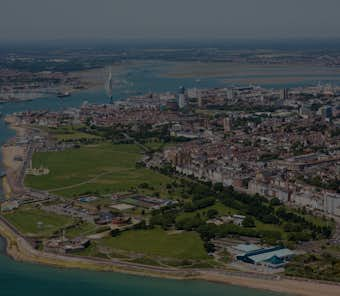
Study marine biology abroad
Find programs that match your eligibility and aspirations then apply with reduced application fees, a free assessment and access to a dedicated advisor.
Find your perfect marine biology programs abroad
Find marine biology programs you love that match your needs & aspirations, where you stand a high chance of acceptance.
-

PhD programs in
marine biologyNo programs listed
Marine Biology degrees abroad
The study of marine biology focuses on understanding the biology of marine organisms and their ecosystems. Most of our planet’s life is found in the oceans, ranging from microscopic algae to massive blue whales, and as a marine biologist, you’ll learn about their behavior, physiology, and ecology, and how they are influenced by factors like climate change and fishing.
The pressure being put on our oceans by pollution and rising global temperatures means the role of marine biologists has never been more important. If you want to play an active role in protecting marine biodiversity and the future of our oceans, then this could be the ideal program for you.
Choosing to study marine biology abroad means you have a wide range of programs from all over the world to choose from. You could study in a country with access to diverse marine biodiversity, or choose a university with cutting edge facilities that you’d not find in your home country.

Why use Studee?
-
Find your ideal program
Filter 10,000s of programs down to a shortlist perfect for you, where you have a strong chance of getting admitted
-
Apply online via Studee
Complete our application form and enjoy reduced application fees and access to unique Studee scholarships for many universities
-
We assess within 48hrs
We complete an 85-point assessment within 2 business days, help you with improvements then submit to your university
-
University offer in 2-4 weeks
We chase the university for your admission decision and keep you updated. We all celebrate your admission!
All our services are 100% free as we're funded by universities. You pay deposits and tuition fees directly to the university.

Marine Biology program structure
At undergraduate level you can study marine biology as a BSc over three or four years. It’s also possible to study an MBiol (Master of Biology), which is taught over four or five years and combines a bachelor’s and master’s degree in one program.
If you already have a bachelor’s degree in marine biology or a related subject, you can study a separate master’s in biology (MSc) over one or two years. If you want a PhD in marine biology, most doctorate programs can take up to five years to complete.
Most marine biology programs will be taught through a combination of lectures, seminars, fieldwork and laboratory sessions. Your progress will be assessed through essays, written exams, presentations, lab reports and a final year research dissertation.
Marine biology is often offered in combination with another subject as a joint honors degree, or specializing in a specific area. For example, you could choose to study marine biology and oceanography or marine biology and zoology.
As marine biology can cover a number of different areas, it’s no surprise that each program’s content and structure will differ depending on the university you choose to go to. Therefore it’s worth checking the curriculum before you apply, but here are some of the modules you can expect to study:
- Biodiversity and evolution
- Marine ecology and oceanography
- Microbiology
- Zoology
- Research methods in marine biology
- Marine invertebrates
- Marine vertebrates
- Exploitation of the sea
- Marine conservation
Best countries to study marine biology
Marine Biology study abroad programs
Marine biology undergraduate programs
Bachelor's in marine biology
-
Biology: Fisheries and Aquatic Biology - BA/BSc Murray State University, USA
- Program type
- Bachelor's
- Duration
- 4 years
- Annual tuition fee
-
14,742 USD
Fees are displayed in the university's local currency
- Start date
- August, January
-

Biology: Marine Biology - BS University of South Alabama, USA
- Program type
- Bachelor's
- Duration
- 4 years
- Annual tuition fee
-
21,593 USD
Fees are displayed in the university's local currency
- Start date
- August, January
-
Biology: Marine Biology - BSc California State University, Long Beach, USA
- Program type
- Bachelor's
- Duration
- 4 years
- Annual tuition fee
-
16,392 USD
Fees are displayed in the university's local currency
- Start date
- August, January
-
Biology: Marine Biology & Freshwater Ecology - BA/BSc University of Wisconsin-Whitewater, USA
- Program type
- Bachelor's
- Duration
- 4 years
- Annual tuition fee
-
19,436 USD
Fees are displayed in the university's local currency
- Start date
- September, January
-
Biology: Marine Biology - BSc Texas A&M University - Corpus Christi, USA
- Program type
- Bachelor's
- Duration
- 4 years
- Annual tuition fee
-
20,344 USD
Fees are displayed in the university's local currency
- Start date
- August, January, May
Marine biology graduate programs
Master's in marine biology
-
Applied Aquatic Biology - MSc University of Portsmouth, UK
- Program type
- Master's
- Duration
- 1 year
- Annual tuition fee
-
20,200 GBP
Fees are displayed in the university's local currency
- Start date
- September
-

Marine Biology - MSc Victoria University of Wellington, New Zealand
- Program type
- Master's
- Duration
- 1 year
- Annual tuition fee
-
37,571 NZD
Fees are displayed in the university's local currency
- Start date
- July
-

Marine biology - MSc Memorial University of Newfoundland, Canada
- Program type
- Master's
- Duration
- 2 years
- Annual tuition fee
-
9,000 CAD
Fees are displayed in the university's local currency
- Start date
- September
-
Marine Biology - MSc University of North Carolina Wilmington, USA
- Program type
- Master's
- Duration
- 2 years
- Annual tuition fee
-
20,155 USD
Fees are displayed in the university's local currency
- Start date
- August, January
-
Marine Biology - MSc Texas A&M University - Corpus Christi, USA
- Program type
- Master's
- Duration
- 2 years
- Annual tuition fee
-
10,652 USD
Fees are displayed in the university's local currency
- Start date
- January, August
Future marine biology careers
As a graduate, you’ll have all the specialist skills and knowledge you’ll need to start a career as a marine biologist or in a related field. The transferable skills you’ll learn in analysis, problem-solving, research and teamwork mean you’ll be well suited to work in many other areas.
Some of the roles marine biology graduates go into include:
- Marine scientist
- Marine ecologist
- Oceanographer
- Conservation officer
- Dive operations manager
- Fisheries officer
- Environmental consultant
- Marine resource manager
- Oil spill consultant
If you know what area of marine biology you want to pursue after graduation, make sure you look for a program that matches your aspirations. Most universities have career services that will be able to guide and advise you on how to get the role you want after university.


















